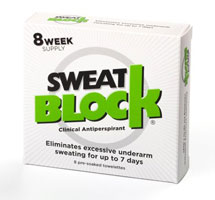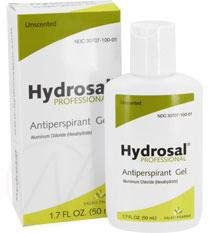Most people who suffer from smelly feet think they need to buy odor reducing insoles, use a powder, or wash their feet with a strong antibacterial soap.
Which, in a way, is true. These measures are helpful.
However, those have nothing to do with the one thing that’s essential to curing smelly feet. These remedies are not the secret I’m talking about.
Don’t get me wrong, these remedies all help but the most effective weapon in the fight against foot odor is something else.
The most powerful action you can take to combat those smelly feet attacks the problem at the source.
If your feet just moderately smell after a long day of walking you may not need this measure.
But some people’s feet really stink (because they are really sweaty).
Their feet feel sloppy and soggy all the time. The sweat ruins their shoes within months.
If they take of their shoes the building needs to be evacuated. The stench announces their presence long before they are seen or heard.
Those who are too close to the whiff will get nauseous and collapse. Some people’s feet reek so horrendous, even skunks avoid their footprints.
For those people, the heaviest artillery in the foul feet odor war needs to be used.
The weapon of choice for such situations is to close down, barricade, block the sweat glands in your foot soles. Less sweat glands means less water evaporation, which means less smell.
Common ways to block sweat glands
Since hyperhidrosis, the medical name for excessive sweating, is a physiologic disorder a number of systemic, topical, surgical, and electrical treatments are available.
You may have heard about how people who really sweat a lot under their armpits will undergo surgery to close the overactive sweat glands.
This type of surgery for feet is often perceived as a last resort remedie or even discouraged since it carries with it the risk of lifelong troublesome side effects.
Botox injections are commonly used as a remedie for excessive underarm sweating. Although this treatment may be used to combat sweaty feet as well, plantar injections of Botox (injections on the foot) can be painful and the results do not last as long as they do in the underarms. Typically, after 3 to 4 months Botox injection effects are worn off.
Patients with hyperhidrosis are sometimes adviced to get iontophoresis treatment. In this remedy, a mild electrical current is conducted in water making contact with the skin’s surface.
This remedy, however, also has a disadvantage, its short-lived effect. You will need to undergo this treatment weekly to be effective. That’s why people often purchase iontophoresis devices for home use.
Iontophoresis is often recommended in case clinical or prescription strength antiperspirants have proven insufficient.
So how to block those sweat glands effectively and safely?
The secret of curing those smelly feet can be described in one word: astringent.
An astringent is a substance, a chemical compound that tends to shrink or constrict body tissues.
Here’s how astringents will reduce sweating
Don’t be afraid, you won’t need a risky surgery or a time and money consuming electrical treatment to achieve a similar effect on your feet.
Astringents are substances you can apply that do practically the same thing. (shutting down sweat glands in order to reduce sweating).
Less sweat equals less bacteria equals less smell. Here’s how astringent agents work:
they alter keratin proteins ( the key structural material) in the outer layer of human skin lining the sweat pore. This leads to a superficial closure of the pore that lasts several days.
The key to reducing foot sweating: aluminum chloride
Docters prescribe this stuff for people who really suffer from stinky feet. It is applied before going to sleep and washed off the day after.
Aluminium chloride hexahydrate (ACH), as it’s called as well, makes your feet feel dryer. Already after the first application you will notice the skin on your feet feels different. More smooth.
A small study when used as a topical treatment for hand palm sweating demonstrates that ACH “appeared to be useful in rapid control of palmar hyperhydrosis.”
I have used it myself for my feet and I concur, this stuff really works.
Personally, I did not experience side effects but of the 12 participants in the study 4 developed skin irritation; in three this disappeared after 1 week and they were able to continue with treatment; one withdrew from the study because of the severe irritation.
A solution to the side effects
However effective, aluminum chloride hexahydrate isn’t a really practical solution because of its skin irritation side effects.
Studies show that when combined with salicylic acid gel this topical doesn’t cause (as much) skin irritation.
15% AC in a 2% salicylic acid gel offers patients a new topical option to treat hyperhidrosis. Additionally, this unique hyperhidrosis therapy demonstrates minimal to no irritation.
Are other astringents viable alternatives to aluminum chloride?
This study comparing the effects of tannic acid lotion with iontophoresis found that the daily treatment of of hand palms with tannic acid (20%) lotion did not result in a significant reduction of sweating. Tannic acid has also show to cause yellow-brown skin discoloration.
Black tea soaks are reported by many (Dr. Oz is one of them) to be an effective sweaty feet cure. After trying it myself I concluded that it does not work for me. Its sweat gland blocking properties are probably just not powerful enough.
Formaldehyde induces contact sensitivity, leading to allergic contact dermatitis in 15% to 20% of patients.
The best cure for smelly feet: an antiperspirant with ACH
The following antiperspirant contain the effective ingredient aluminum chloride hexahydrate.
They work by reacting with the electrolytes in sweat thus forming “gel plugs” that block off your sweat ducts.
Since your feet have over 500,000 sweat glands (the highest concentration of sweat glands per inch on your body) blocking these is the key to effectively curing smelly feet.
Added benefit of aluminum chloride is that it has shown to be a proven cure for symptomatic athlete’s foot.
Recommended products
Most over-the-counter antiperspirants are for underarms. Since they contain the same active ingredients you can use them for your feet too.
Roll-on products are often not people’s first choice since it’s harder to apply the solution between the toes.
Although you could get around it by applying plenty and using your fingers to reach in between the toes. Most will find towelettes are more convenient though.
SweatBlock Antiperspirant – As Seen on Rachael Ray
 pros
pros
- well reviewed
- contains 14% aluminum chloride hexahydrate
- little to no reviews mentioning skin irritation or other side effects
- affordable at about $20
cons
- basically for underarm treatment
Hydrosal Professional Antiperspirant Gel
 pros
pros
- contains salicylic acid
- well reviewed
- contains aluminum chloride
cons
- more expensive at about $40
Buy Hydrosal Professional Antiperspirant Gel on Amazon.
Conclusion
Our feet are the body parts with the most sweat glands. Bacteria that feed of the sweat are naturally present on our skin.
But fact remains that we are a shoe wearing species. And shoes keep the sweat in.
Therefore it’s crucial to approach the source, the sweat by treating the sweat glands with astringents. Taking off your shoes more often and wearing cotton or wool socks can also help.
Of the several different astringents aluminum chloride is the most effective and safe option. Especially when combined with salicylic gel.
Various commercial products containing these substances exist. Most focus on underarm sweating but they can be used on feet as well.
If this remedy does not work, iontophoresis may be effective. Consulting your doctor may be best in such situations.